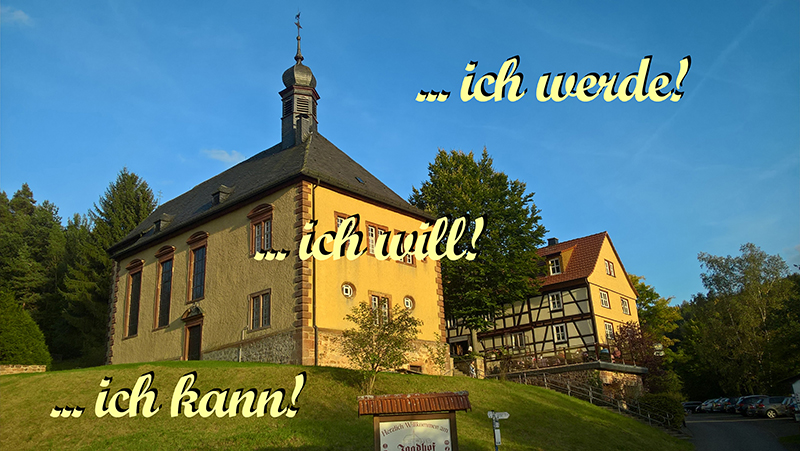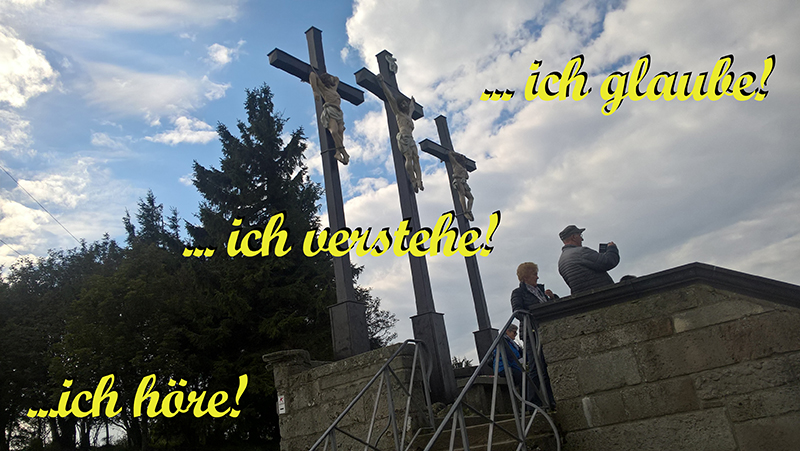Selection of the sermons of Father Ezekiel Oko
Reverse: what for?
Dear sisters and brothers, in the Gospel Jesus presents the two brothers in a parable, whose behavior is very different. One is a yes-man whose “yes” is superficial and an empty word. The other reacted spontaneously to his father's request and said: "I don't want to." Well, he responded with a "No." "But later he regretted it and went out." Through his actions he showed a change of heart.
The two brothers also live in each of us. It is not uncommon for us to react spontaneously to a request like the first person and say: “Yes, I want to!” without fulfilling our promise. We are familiar with such promises, especially from politics, but even when living together in smaller circles there are always promises that are not kept.
But there is also the other side, the other brother, in our lives: each of us has had the experience of “turning around” and acting differently. Why this change? Maybe because we were touched by an encounter, because a situation touched our hearts and opened our eyes.
It's not about saying yes or no. Rather, it's about the decisions we make every day, the approvals or rejections that we indicate through our behavior and our actions.
You know, the fact that we are here in this mass is a kind of promise, a promise that has not only been spoken, but rather has been put into practice. We want to worship God, thank him, listen to him. And that's what we're actually doing now.
Every decision we make, every action we take is either an acceptance or a rejection. But it doesn't matter whether we say 'yes' or 'no'. It doesn't matter who or what we say 'yes' or 'no' to. Because every decision we make has an effect(s) not only in our lives, but also in the lives of other people. Some decisions rob us of our life, our future, or our peace. Some even destroy other people's lives.
This brings us to the main theme of today's readings: repentance. With the parable of the two brothers, Jesus also introduces us to the topic of “repentance”. The message is that repentance is not only possible, but that it may even be urgent. When my decision, when my actions and behavior destroy lives - mine or someone else's - and impair justice, it is urgent that I repent.
The problem is that the person who does wrong sometimes does not understand that he is doing wrong. As limited beings, we humans are not in possession of the full truth and therefore our understanding of our actions and our words is fragmented. This also means that it is not always clear to us what justice means in concrete life.
A man called me a few days ago and asked if I could inform him about what constitutes sufficient grounds for annulment of a marriage in the Catholic Church. What he meant was that he had had enough of the trouble with his wife. Then he started crying as he told me, “I can’t recognize my wife anymore. "That wasn't the woman I married." I tried to reassure him.
Later I called his wife and wanted to hear from her side. She told me almost the same thing: “My husband has changed a lot in his behavior towards me. I can't stand him anymore!” Which of them should I believe now?
It is not uncommon for people to go to court to find out who is wrong and who is right. We first explain the question of justice in real life to one another in court. In doing so, we show that we do not always recognize where justice stands and do not always know that we are treating others or ourselves unfairly.
Repentance does not take place if one is not aware of the need for repentance. Therefore, repentance should begin with my willingness to pursue the truth. I strive for the truth. I weigh my behavior against the truth that I know. Only then can I act differently depending on how far I am in discovering the truth. When Jesus says to his listeners in today's Gospel: "You have seen it, and yet you have not repented or believed him," he is asking them and us: "live in accordance with the truth that you know!"
Representatives of the universal church will gather in Rome this month for the Synod of Synodality. Synod is an opportunity for the church to consider whether it is functioning in accordance with the truth. We pray today that the representatives will have this in mind, to consider everything in terms of the truth. Jesus Christ is the truth!
And if we want to fully walk the path of conversion in our own lives, then we must continually look to Jesus as the goal. He is the truth. His life and his exemplary love serve as the ultimate goal of conversion for us Christians. In the second reading we are therefore asked: “Be of the same mind as Christ Jesus!” From him, from the example of his love, we recognize where we need to repent and where we should go. Justice in the Christian sense means standing by Jesus Christ, remaining in his love, shaping one's own life in this love and remaining connected to one another in this love.
The Parable of the Two Sons
Matthew 21:28-32
28 “What do you think? A man had two sons. And he went to the first and said, ‘Son, go and work in the vineyard today.’

29 And he answered, ‘I will not,’ but afterward he change and his mind and went.
30 And he went to the other son and said the same. And he answered, ‘I go, sir,’ but did not go.
31 Which of the two did the will of his father?” They said, “The first.” Jesus said to them, “Truly, I say to you, the tax collectors and the prostitutes go into the kingdom of God before you.
32 For John came to you in the way of righteousness, and you did not believe him, but the tax collectors and the prostitutes believed him. And even when you saw it, you did not afterward change your minds and believe him.
Overview


